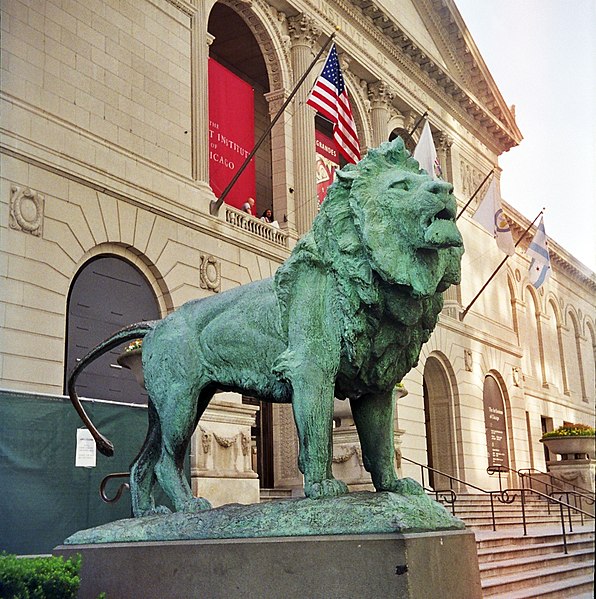2010's Tony Award-Winning Best Musical "Memphis" made a 2-week stop at Chicago's Cadillac Palace Theater, bringing enough energy and heart to warm the whole city.
This is a pulsing, joyous, "fantastical" entertainment featuring original music done in the spot-on style of 1950's rock-and-blues, covering the same period of time in the same tradition as "Hairspray" and "Jersey Boys", but tempered with a sad and ominous underside: the violent ignorance and racism of the era. The music is raucous and tuneful, coupled with rollicking "Bandstand"-style choreography, and rapid-fire dialogue. There are laughs galore here, and heartache, too.
It recreates a time of innocence in the music industry. It was a time when an uneducated but good-hearted guy could rise to stardom on the radio, when "everybody wants to be black on a Saturday night", and when young rockers led the way to a segregated society. ("Memphis" reminds us how far society may have progressed, and in the most indirect way, how corrupt and cynical the music industry has become today.)
But more than anything, "Memphis" is a lot of fun. After seeing it you might leave the theater yearning to produce a rock and roll TV show, sing in a band, or dance with all your might. You might also feel a bittersweet bond with a character who will work his way into your consciousness like a good friend does.
"Memphis" is about a happy-go-lucky young man named Huey Calhoun, who blasts his way into a job as a local radio DJ to play the "race music" he loves, which will soon become known as rock-n-roll. As he champions this "dangerous" but liberating new sound, he starts a local tidal wave that soon will catch on all over the nation. Fast-talking, loose-limbed and naively likeable, Huey frequents a black club in a part of town normally forbidden to whites, and is taken by the formidable musical talents of the headliner named Felicia. Completely smitten, he wins her over, and fulfills his promise to make her a star, just as his popularity begins to wane.
They become involved in a sweet yet forbidden romance. "Memphis" reveals the almost impossible challenges of a mixed-race relationship, and the compromises involved in becoming a success, especially to those who cling to their ideals.
The sweet, nostalgic embrace that is Act One eventually gives way to the inevitable history of that time and place. When acts of violence erupt suddenly, even in their stylized way, they are shocking. There is real pain on stage as a result. The feel-good innocence of the music is shadowed by ignorance,
In Act two, Huey's descent is telegraphed in broad strokes---a liquor flask hidden in his jacket, and a general waning of energy--just as he hits his peak as a "Richard Clark"-styled TV Dance-Show host. Here the production hits its peak too, using black-and-white TV cameras and a large screen to "broadcast" the action and the music that unfolds before us. Huey's last hurrah, a rollicking number called "Tear Down the House", makes us his allies in rejecting the segregationist ideas of a big-time TV producer who wants to eliminate most of the black dancers on the set. Toward the end, as Huey once more occupies a little radio studio on the less popular end of the radio dial, the stage is completely black except for his booth. Huey's world has grown too small, and he has diminished with it.
Fortunately, he is held up once more for applause, as Felicia, now a star and engaged to another, encourages him to attend her show and take the stage with her. And so, "Memphis" ends on a triumphant note.
"Memphis" is loosely based on the real-life Memphis DJ Dewey Phillips (click on the link for his biography), who in the 1950's became a smash with his frantic on-air delivery and fierce support of black music. Phillips soon began to abuse amphetamines and alcohol, and met an untimely end at age 42. An early version of "Memphis" had Huey die during the show; fortunately, the show maintained its optimistic tone.
The show is filled with a strong ensemble of dancers and singers. Even the secondary characters who perform songs create memorable, rounded characters. The staging and choreography are efficient and clever, and well above the bar set by typically excellent Broadway in Chicago productions.
Felicia Boswell has a terrific voice and is a marvelous actress too. She provides the dramatic chops "Memphis" needs to put across its serious message. She is completely convincing during every stage of her development as a character. Her rendition of "Someday" is beautiful and true. In an era when such things were still possible, this song, and Boswell's rendition, could have become a breakout single and a huge hit, a Broadway standard.
As Huey's mama, Julie Johnson has the widest character arc, from a sheltered and limited woman who is afraid to go against racist convention, to a flamboyant stage mother, brilliant and hilarious. Her "Change Don't Come Easy" number brought the house down.
Last, and best, is Bryan Fenkart as Huey. I will never forget his escalating rant in the radio studio, selling beer for a local grocery store. From that moment on I was in love with the character. He is both expansive, ready to explode in every scene, as well as a regular guy, just trying to do right by his mama and to love his sweetheart even though it is illegal for him to do so. (There are subtle shades for modern audiences of current marriages that are still illegal.) Fenkart has perfected a set of mannerisms and vocal deliveries, with a high-pitched carnival-barker's voice and down-home accent. I missed the original Broadway cast, but I cannot imagine a more perfect actor to embody the quirky and wonderful Huey Calhoun than Fenkart.
Hock-a doo!
 |
| (Photo by Paul Kolnik) |




































